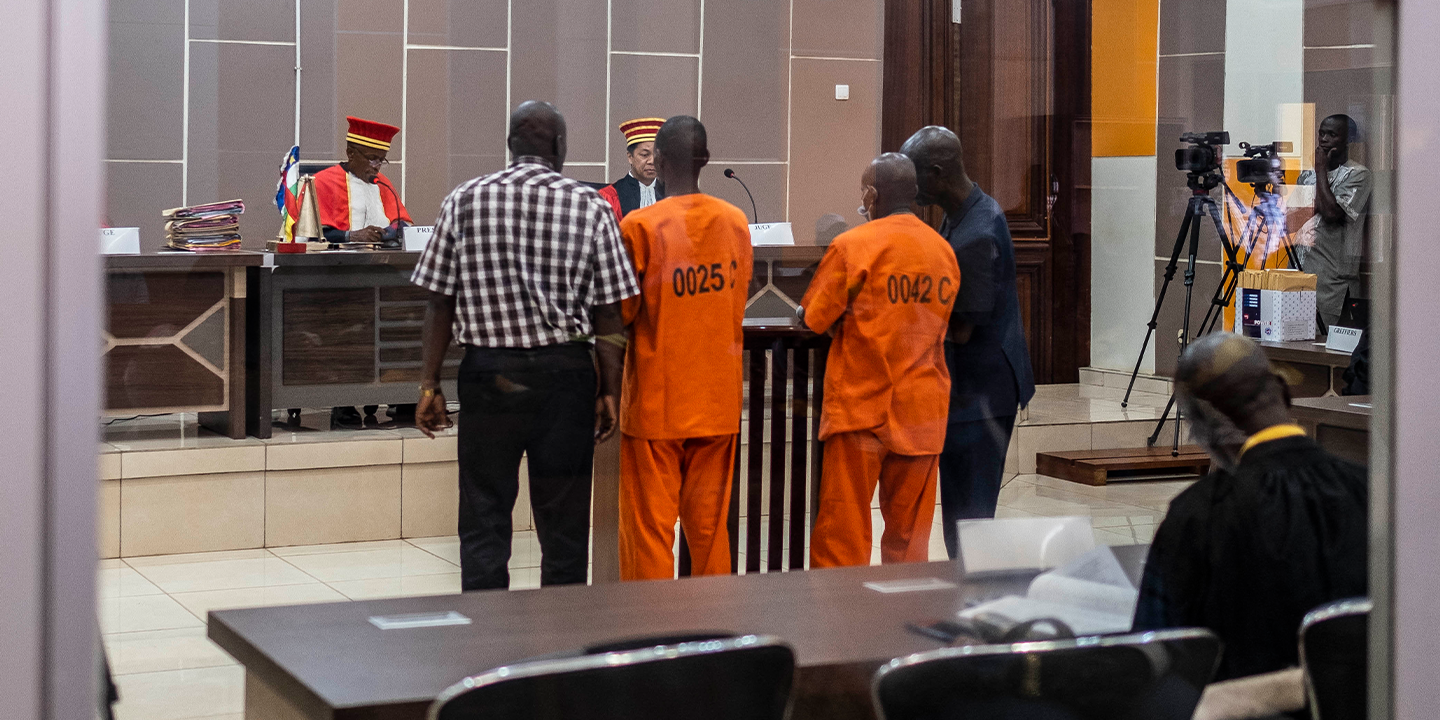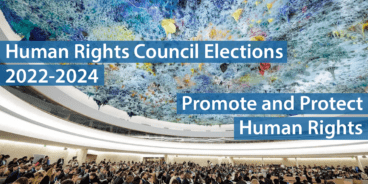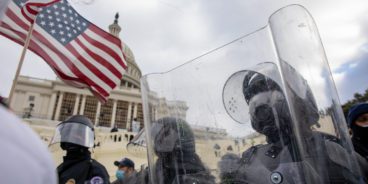
Open Letter to President Obama on the Atrocity Prevention Board
Dear President Obama, We are writing to express our great appreciation for the recent steps you have taken to establish the interagency Atrocities Prevention Board (APB). As participants of the Prevention and Protection Working Group*, we have advocated for such a structure to better prioritize and coordinate U.S. efforts to help prevent genocide and other mass atrocities, before the violence starts. Your April 23rd speech at the U.S. Holocaust Memorial Museum demonstrated your administration’s continued commitment towards making “never again” a reality.
Indeed, this recent step follows on your precedent-setting actions to expressly identify prevention of genocide and mass atrocities as a core U.S. national interest in the National Security Strategy, Quadrennial Diplomacy and Development Review, the Quadrennial Defense Review, and to appoint the first White House director for War Crimes and Atrocities whose responsibility is prevention of such violence. We welcome your leadership on this important issue and stand ready to work with the APB in our shared goal of saving future generations from the scourge of mass violence. As a coalition of organizations that has dedicated itself to working toward the goals of PSD-10 for the past three years, we would like to offer the following recommendations as the Atrocities Prevention Board begins its work:
-
-
- Focus on Early Prevention Capacity-Building; Delegate Rapid Crisis Response: While the United States has a responsibility to respond to immediate crises, we urge you to focus the bulk of the APB’s work on developing effective institutions, systems, and collaborations that help prevent mass atrocities in the future. The APB should ensure that interagency policy committees or other mechanisms are in place and can effectively respond to the most urgent violent crises of the day, while dedicating itself to the long-term work of strengthening U.S. capacities for early prevention.
- Invest in Civilian Leadership and Tools: Effective atrocities prevention requires improving early warning systems, strengthening diplomatic capacities, and fine-tuning development assistance. Well-trained civilian leadership is needed to guide both policy and practical response. We urge the APB to prioritize improving civilian leadership and capacities for atrocities prevention.
- Link Conflict Prevention and Atrocities Prevention Capacities: In 2010, the State Department elevated violent conflict prevention policies and operations and included mass atrocities prevention in the QDDR. We urge the APB to assess how the QDDR and PSD-10 can reinforce each other. Clear coordination, leadership and processes that connect the APB with QDDR implementation and other conflict prevention initiatives are necessary from the outset so that new structures complement rather than compete. Our coalition can offer expertise on conflict prevention and civilian surge capacities, as well as atrocities and genocide prevention, to help ensure such coordination.
- Make Congressional Engagement a Priority: Bipartisan support for atrocities prevention exists in both the House and the Senate, but that leadership has often felt disconnected from the Administration’s efforts. We encourage you to engage with Congress as you determine the agenda of the Atrocities Prevention Board and to articulate the cost-saving benefits of investing in preventive capacities. Cultivating and working with Congress leadership across the areas and agencies covered by the APB will be critical for the APB’s sustainability beyond any one Administration. We stand ready to work with you toward this end.
- Support Multilateral Conflict Prevention, Peacekeeping, and Peacebuilding Capacities: Strengthening multilateral peacekeeping operations and making them more effective at protecting civilians and reducing the risk of mass atrocities multiplies the efficacy of U.S. actions and reduces financial costs to the United States. We encourage the study to institutionalize multilateral approaches into atrocities prevention policies, including assisting foreign governments in their efforts to create national focal points and other aspects of their early warning and response architecture.
- Consult Local Civil Society Organizations: Currently, institutional mechanisms do not exist for including civil society organizations in conflict assessment and policy planning. Local civil society experts possess significant skills and knowledge, and clear processes for consulting them – without placing them at risk – must be developed to ensure that conflict assessments are more accurate and programming more effective in addressing the root causes of instability. Many organizations in our coalition are leaders in the peacebuilding field and can serve as resources for you to develop effective consultation mechanisms.
- Consult U.S. NGOs: We encourage you to regularly consult the U.S. NGO community as the APB develops and implements its agenda. For instance, our coalition includes human rights, humanitarian, faith-based, student, women’s, and peace and conflict organizations that have all been engaged in atrocities prevention in diverse ways. In addition to providing valuable insights and information, U.S. NGOs have capacity to conduct student mobilization, outreach to diaspora communities, congressional engagement, and public awareness-raising. Effective atrocities prevention will require both intergovernmental and civil society efforts and, ideally, collaboration and coordination between the two. Toward that end, we suggest the APB include “civil society consultation” as a standing item in the agenda for its meetings.
-
President Obama, we again thank and congratulate you and your Administration on the release of PSD-10 and establishment of the APB. As the Atrocities Prevention Board is assembled and begins work, we stand ready to partner with this new body to ensure that timely action and policy responses contribute to helping prevent mass atrocities before they begin and to fulfill the promise of “never again.”
Sincerely,
- Alliance for Peacebuilding
- American Public Health Association
- Auschwitz Institute for Peace and Reconciliation
- Better World Campaign
- Central Conference of American Rabbis
- CIVIC Worldwide
- Conference of Major Superiors of Men
- Enough Project
- Franciscan Action Network
- Friends Committee on National Legislation
- Global Center for the Responsibility to Protect
- Global Solutions
- Human Rights First
- Humanity United
- Jewish World Watch
- Oxfam America
- Peace Alliance
- Physicians for Human Rights
- Resolve
- Sisters of Mercy of the Americas – Institute Justice Team
- STAND
- Student Peace Alliance
- Union for Reform Judaism
- United Methodist Church, General Board of Church and Society
- United to End Genocide
*The Prevention and Protection Working Group is a coalition of human rights, religious, humanitarian, anti-genocide, peace and other organizations dedicated to improving U.S. government policies and civilian capacities to prevent violent conflict, mass atrocities and protect civilians threatened by such crises.
Related Content


UN Human Rights Council Elections for 2022-2024 and the Responsibility to Protect
